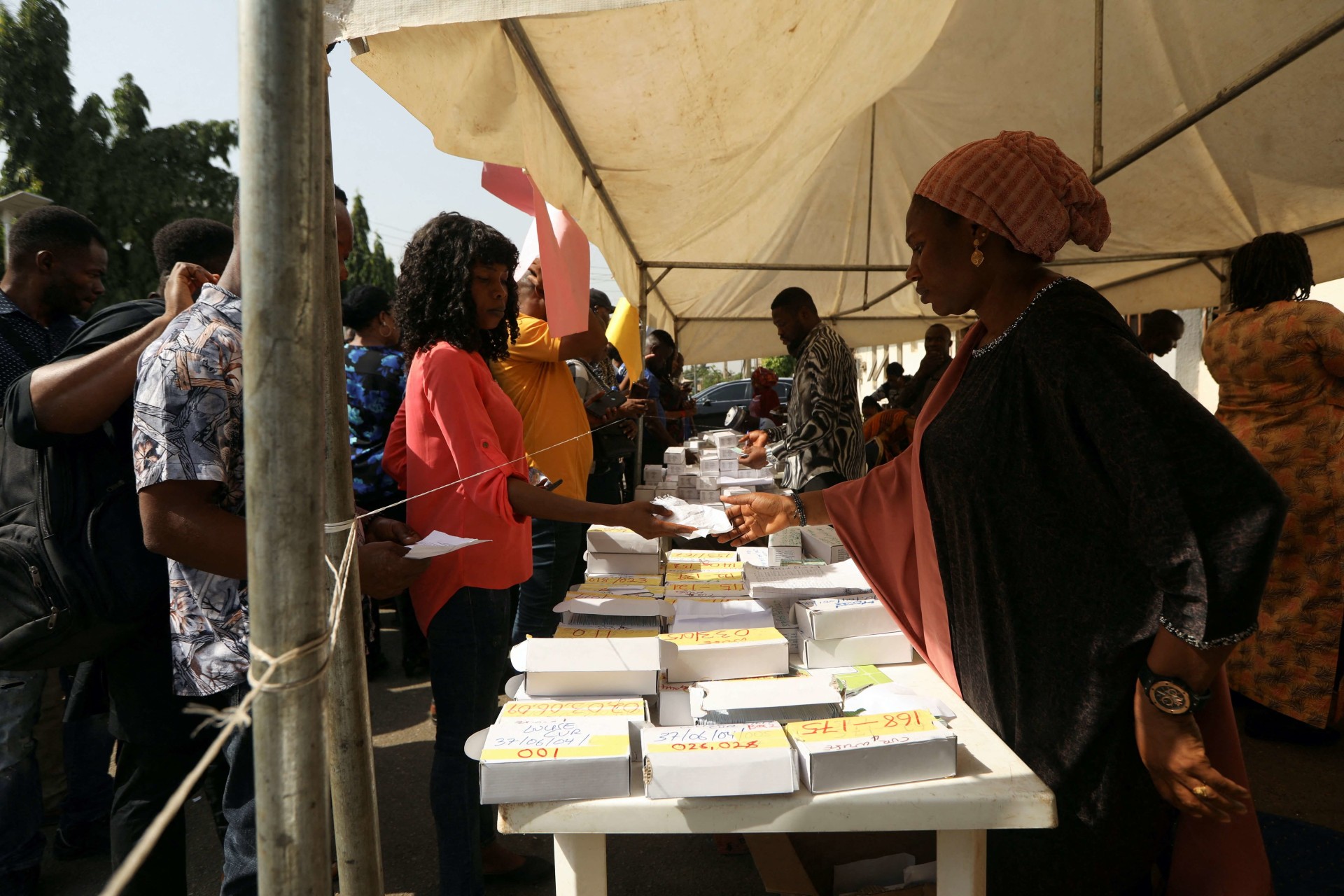The Promise and Peril of Nigeria’s 2023 Elections
All eyes are on Nigeria as it prepares for its general election in early 2023. Has the government convinced Nigerians that their votes, and lives, will be secure?

By experts and staff
- Published
Experts
![]() By Michelle GavinRalph Bunche Senior Fellow for Africa Policy Studies
By Michelle GavinRalph Bunche Senior Fellow for Africa Policy Studies
Nigeria’s 2023 general election is just weeks away. With incumbent President Mohammadu Buhari term-limited, the country will be choosing a new leader. That new president will immediately confront an exhausting array of challenges, from multiple, complex security crises to a disastrously mismanaged economy. In a recent Afrobarometer survey, nearly 89 percent of Nigerians felt that the country was heading in the wrong direction, and 77 percent were dissatisfied with the way their democracy has been performing.
There are some reasons for optimism that the upcoming polls will be an improvement on the 2019 election. First, President Buhari has strongly signaled that he wants a credible, transparent electoral process to be an important part of his legacy. Legal reforms enabled earlier planning and new technology has been deployed to improve voter accreditation and the transmission of results. A surge of new voter registrations, especially among young people, suggests that Nigerians believe the 2023 elections are a process worth their time and energy.
But political violence continues to bedevil the country. Among its most worrisome manifestations are the attacks on offices of the Independent National Electoral Commission (INEC), which clearly aim to undermine the electoral process itself. History has primed observers to be concerned about post-election violence. But the prospects of disarray due to attacks on election infrastructure, or of significant numbers of Nigerian voters determining that it simply is not safe to vote on election day, are also scenarios that call for urgent attention. Choosing Nigerian leadership is up to Nigerian voters, but external actors, including the United States, should continue to make it clear that anyone weaponizing fear to undermine democracy could be subject to targeted sanctions.
Moreover, elections alone don’t translate to accountable, democratic governance. The rule of law, applied to all citizens, is equally essential. But impunity has thus far rendered new laws around campaign financing and transparency moot. That same impunity led to zero accountability for the 2020 Lekki toll gate killings, and for years has enabled the theft of resources that could have been used to serve the Nigerian people. No matter how well the election goes, any newly elected government will have to address this massive challenge to create the kind of democracy that can deliver real results for Nigerians.
All this matters to the rest of the world. The stakes are high, not just for Nigerians, but more broadly for the region, where military coups and democratic backsliding have undermined regional governance norms. Nigeria has been internally focused for over a decade, unable and unwilling to wield the kind of decisive regional influence that it did years ago. But Nigeria is inescapably important to the future of the continent. The sheer size of its economy and population, alongside the power and reach of its cultural and creative industries, mean that even with a desultory foreign policy, Nigeria’s trajectory will affect societies far beyond its borders.
